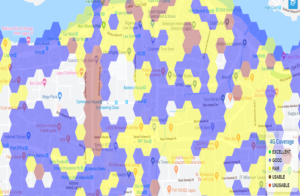Ado-Ekiti, town, capital of Ekiti state, southwestern Nigeria. It lies in the Yoruba Hills, at the intersection of roads from Akure, Ilawe Ekiti, Ilesha, Ila Orangun, and Ikare, and is situated 92 miles (148 km) east of Ibadan. An urban and industrial centre of the region, it was founded by the Ekiti people, a Yoruba subgroup whose members belonged to the Ekiti-Parapo, a late 19th-century confederation of Yoruba peoples that fought against Ibadan for control of the trade routes to the coast.
Ado-Ekiti became the site of a large textile mill in 1967, the people having a long-standing tradition of cotton weaving. The town also produces shoes and pottery and is a collecting point for commercial crops such as cocoa and timber. Crops such as yams, cassava, corn (maize), rice, and fruits are marketed locally. Ado-Ekiti is the site of Ekiti State University (1982) and a federal polytechnic college. Pop. (2016 est.) urban agglom., 465,000.
In this report, the quality of deployment of the Long-Term Evolution (LTE) cellular networks of four (4) national mobile network operators, namely MTN, GLO, AIRTEL and 9MOBILE along a select route in ADO EKITI is evaluated.
The drive test was conducted on September 4, 2019 between 8am – 6pm.
The map below shows sample coverage quality.
Click here for full access to Enextgen visualization platform.
The four mobile wireless broadband service providers evaluated are MTN, Globacom, 9Mobile and Airtel. The performance of the radio access networks of each service provider along each evaluated route, in comparison with the other service providers, is rated, using the following KPI weights: Connection Drop rate, 20%; Connection Setup Failure rate, 20%; Downlink Throughput distribution, 15%; Peak Downlink Throughput, 10%; Latency, 15% and Non-LTE UE Technology 20%.


Summary
NIWBQR provides evaluation of the quality of 4G technology deployment in Nigeria. This report is for Ado Ekiti, Ekiti State, Nigeria.
Only MTN has 4G (LTE) deployed in Ado. The other three service providers offer 3G (UMTS) only. The Qualities of deployment of these four cellular networks, namely MTN (LTE) , GLO (WCDMA), Airtel (WCDMA) and 9Mobile (WCDMA) are evaluated.
The Nigerian mobile data market has witnessed an increased demand for broadband with increased usage of smartphones, tablets, notebooks, and laptop computers. Users now demand services and applications from mobile communication systems that go far beyond voice and telephone. The goal of this report is to show the quality of the network as seen high-quality user equipment.
The report clearly shows that packet delay (latency) continues to be a problem in the LTE networks.

Our goal is to help improve the quality of service experienced by the users of mobile telecommunication networks in Nigeria. A report containing our ranking and detailed RF Analysis is available for a fee.
We collect comprehensive RF Performance data on the Networks of Mobile Broadband Service Providers in Nigeria The raw UE log is available for interested service providers to use in further improving the quality of their networks. For additional details click here to fill-out the form.



